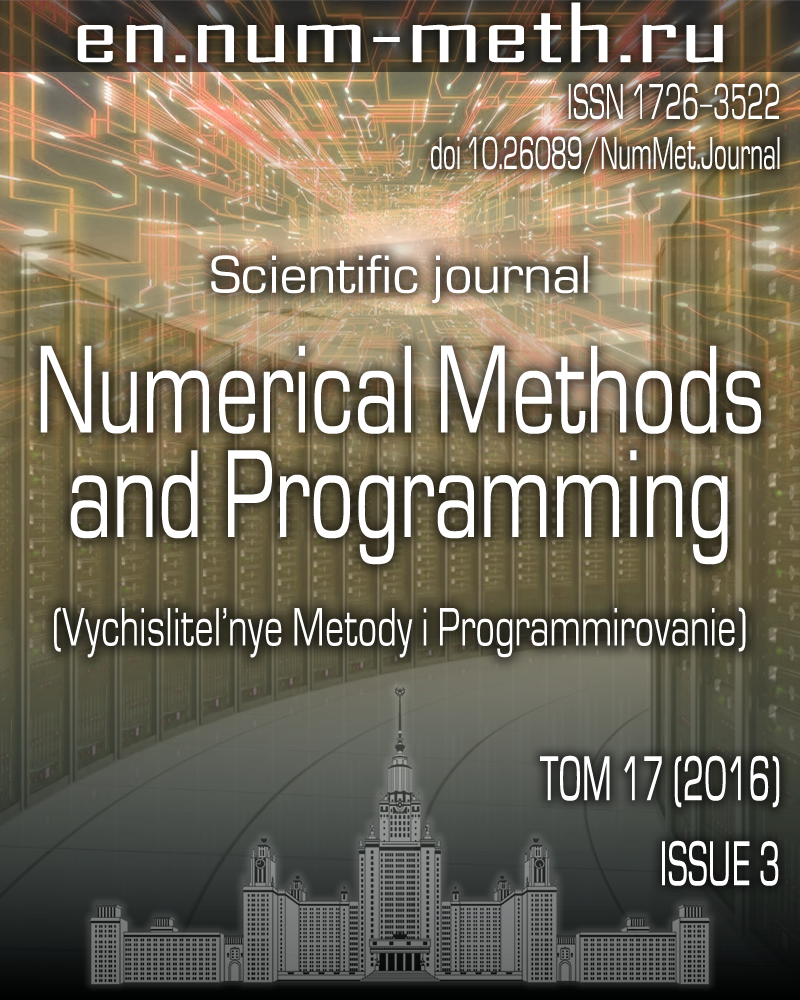DOI: https://doi.org/10.26089/NumMet.v17r318
Application of polynomial transforms for fast 2D convolutions
Keywords:
2D convolution
polynomial transform
fast algorithms
Abstract
A fast algorithm for computing 2D convolutions based on the Nussbaumer polynomial transforms is considered. Its efficient implementation is proposed with the use of Intel AVX SIMD instructions. It is shown that, for a limited range of convolution kernels, the performance increases by 50% in comparison with the direct algorithm and with the method of fast convolution based on the fast Fourier transform implemented in the Intel IPP library.
Published
2016-05-13
Issue
Section
Section 1. Numerical methods and applications
References
- E. C. Ifeachor and B. W. Jervis, Digital Signal Processing: A Practical Approach (Prentice-Hall, Harlow, 2002; Vil’yams, Moscow, 2004).
- H. J. Nussbaumer, Fast Fourier Transform and Convolution Algorithms (Springer, Heidelberg, 1982; Radio i Svyaz’, Moscow, 1985).
- D. J. Bernstein, “The Tangent FFT,” in Lecture Notes in Computer Science (Springer, Heidelberg, 2007), Vol. 4851, pp. 291-300.
- Yu. V. Nesterenko, Number Theory (Akademiya, Moscow, 2008) [in Russian].
- A. O. Makarov and V. V. Starovoitov, Fast Algorithms for Computing Features on Digital Images , Preprint No. 1 (United Institute of Informatics Problems, Minsk, 2005).

